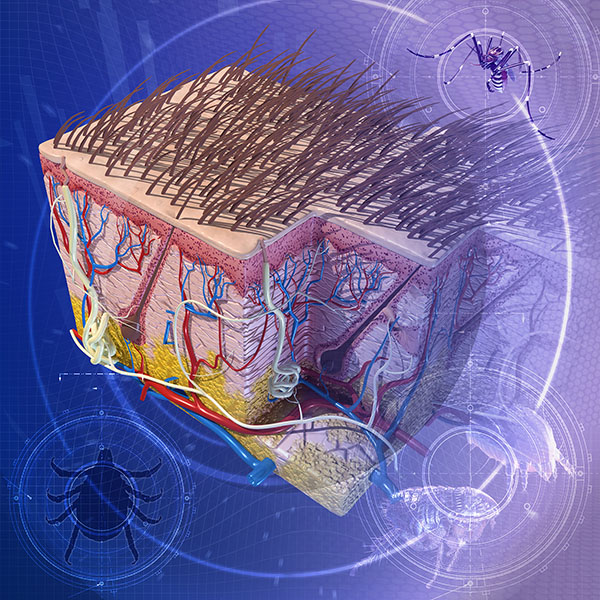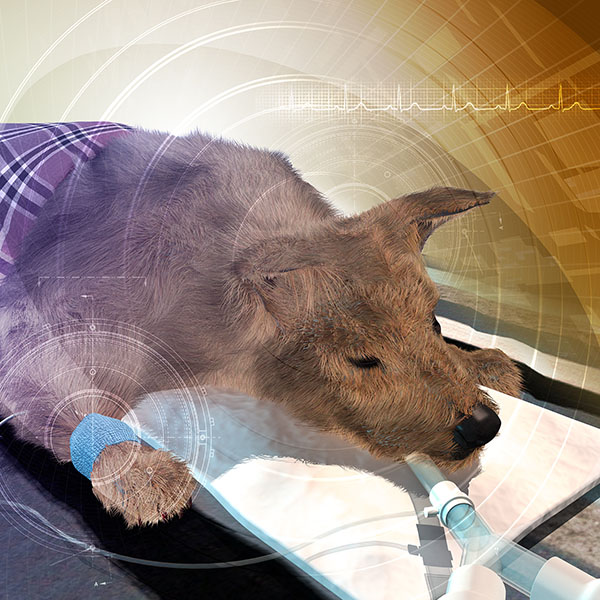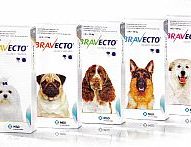colitis in cats merck
The large intestine also called colon or large bowel helps maintain. The principal adverse effects in dogs are keratoconjunctivitis sicca and vasculitis.

Infectious Keratoconjunctivitis In Animals Eye Diseases And Disorders Msd Veterinary Manual
The long-term risk of colon cancer is increased compared to people who do not have ulcerative colitis.

. Colitis is an inflammation of the colon large intestine which is the last part of the digestive tract in cats. Bacterial or fungal infection. In cats there is no age or gender association with colitis.
This in turn causes the superficial mucosal layer of the bowel to thicken. Clostridium difficile is a large gram-positive anaerobic spore-forming motile rod and is the major cause of antimicrobial-associated colitis in humans. C difficile associated diarrhea and disease develops spontaneously in a variety of other species including horses pigs calves dogs cats hamsters guinea pigs rats and rabbits.
Because of the risk of salicylate toxicity in cats see Colitis in Small Animals Colitis in Small Animals Colitis occurs in dogs and cats and often presents as chronic large-bowel diarrhea of unknown origin. Cytology of rectal scrapings may reveal Histoplasma organisms. The colon is also known as the large intestine and this is the location of the feces before bowel movement.
Viral or bacterial infection. The condition may last for less than 2 weeks case in which it is an acute colitis but if the condition persists the colitis is chronic. Injury to the colon.
Treating your cats colitis. Causes of cat colitis include allergies infection injuries ingestion of toxic substances and cancer. Colitis is an inflammation of the colon or large intestine.
Ulcerative colitis is a chronic inflammatory bowel disease in which the large intestine colon becomes inflamed and ulcerated pitted or eroded leading to flare-ups bouts or attacks of bloody diarrhea abdominal cramps and fever. Some possible causes include. They are used in dogs cats and horses often when all other forms of therapy have failed.
There are several causes of colitis in cats which include infection food allergy or intolerance parasites pancreatitis. Extraintestinal symptoms particularly arthritis may occur. The condition can become severe enough to ulcerate the tissue.
Some cases of colitis may be due to autoantibodies and T lymphocytes directed against colonic epithelial cells. Cryptosporidium is a rare cause of malabsorption and is best identified in feces by immunofluorescence. Overview of Colitis in Cats.
Most affected dogs are young developing clinical signs before 2 years of age. Many cats may have an occasional acute bout of colitis but if the condition becomes serious and chronic treatment may be required in the form of dietary modification antibiotics anti-inflammatory drugs or deworming. They are used in dogs cats and horses often when all other forms of therapy have failed.
Ulcerative colitis is a chronic inflammatory and ulcerative disease arising in the colonic mucosa characterized most often by bloody diarrhea. Eating things he shouldnt as a result of scavenging in bins for example. Cat colitis is a painful medical condition that involves the swelling of the lining of the colon.
Food allergies or dairy intolerance. Colitis may be acute or chronic and cause symptoms such as diarrhea and abdominal pain. The more common causes of colitis include.
Constipation is the infrequent or difficult passage of feces. It can be acute lasting only a few days or chronic lasting for weeks. Feline Colitis is a chronic bowel disease resulting from inflammation of the intestine.
Diagnosis is based on the history and clinical findings. It may be acute with sudden onset and short duration or chronic that is present for at least two to three weeks or exhibiting a pattern of episodic recurrence. The long-term risk of colon cancer is increased compared to people who do not have ulcerative colitis.
Frequent watery stools which may contain blood or mucus loss of appetite. The immune system attacking its own body. Stress Intestinal parasites such as roundworms Coccidia or Giardia Viral infections particularly feline leukemia virus FeLV feline immunodeficiency virus FIV or feline infectious.
Glucocorticoids suppress the immune reaction and are used when biopsy results suggest eosinophilic or plasmacytic-lymphocytic colitis. Histiocytic ulcerative colitis is a rare but severe large bowel disorder that is seen primarily in Boxer dogs but has also been reported in the French bulldog mastiff Alaskan malamute and Doberman pinscher breeds. Common causes of colitis in cats.
Disorders of the Stomach and Intestines in Cats Inflammation of the Large Intestine Colitis. Long-term risk of colon cancer is elevated compared to unaffected people. The colon is a segment of the intestine and plays an important role in the defecation process.
Gastrointestinal infections such as salmonella or giardia. Water is absorbed in the colon and feces are stored until the cat passes it out of the body. Other physical symptoms of.
Some cases of colitis may be due to autoantibodies and T lymphocytes directed against colonic epithelial cells. Colitis in cats is a condition that manifests through the inflammation of the lining of the colon causing a lot of discomfort. Colitis means inflammation of the colon and that spells diarrhea - often with fresh blood or mucus - and straining and discomfort for the pet as well as a mess to clean up.
Parasites such as hookworms roundworms whipworms or giardia Food allergy Bacterial viral or fungal infections Eating nonfood items such as grass plastic or fabric. Understanding Feline Colitis. Tritrichomonas typically causes colitis in cats rather than malabsorption and is best diagnosed by pouch culture or PCR.
There are a number of causes of colitis in cats which include infection food allergy or intolerance parasites pancreatitis cancer dietary indiscretion and stress. A secondary reaction to antibiotics and other medications Pancreatitis Dietary intolerance or. The fecal material is.
Colitis is inflammation of the colon large intestine. The calling card of colitis in cats is a loose or mostly wet stool containing mucus and sometimes blood. Irritable bowel syndrome IBS Intestinal worms.
Up to 20 cash back Feline Colitis. Glucocorticoids suppress the immune reaction and are used when biopsy results suggest eosinophilic or plasmacytic-lymphocytic colitis. The reason for the inflammation is often idiopathic unknown.
Ulcerative colitis is a chronic inflammatory bowel disease in which the large intestine colon becomes inflamed and ulcerated pitted or eroded leading to flare-ups bouts or attacks of bloody diarrhea abdominal cramps and fever.

Calcium Oxalate Dihydrate Crystals In Urine

Tables Merck Veterinary Manual

Pdf Merck Veterinary Manual Summary Merck Veterinary Manual Summary 1 Merck Veterinary Manual Summary 2 Nicku Malancea Academia Edu

Overview Of Caprine Arthritis And Encephalitis Caprine Arthritis And Encephalitis Merck Veterinary Manual Veterinary Merck Respiratory Diseases

Gpcr Zyklus Life Science Merck Co Social Enterprise

Learn About The Equine Gi System In Its Entirety Equine Vet Tech Equine Veterinary Vet Medicine

The Next Set Of Anatomy Notebooking Pages Is The Digestive System Description From Pinterest Com I Searched For T Large Animal Vet Horse Anatomy Vet Medicine

Pin By Karen Thompson On Health Wellness Merck Manual Digestive Disorders Disorders

Tables Merck Veterinary Manual

Products Merck Animal Health Canada

Tables Merck Veterinary Manual

Bravecto Plus Topical Solution For Cats

Tyzzer Disease In Animals Digestive System Msd Veterinary Manual

Equine Digestive System Horse Care Digestive System Equine Veterinary

The Urinary System Of Cats Kidney And Urinary Tract Disorders Of Cats The Merck Manual For Pet Health Cat Uti Cat Anatomy Cats

The Urinary System Of Cats Kidney And Urinary Tract Disorders Of Cats The Merck Manual For Pet Health Cat Anatomy Vet Medicine Vet Tech Student

New Flea Tick Medication By Merck Just Approved Bravecto Dr Justine Lee
